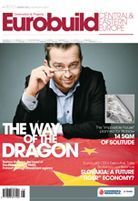In August 2010, Slovak economy minister Juraj Miškov announced plans to eliminate red tape and relax the labour laws. "We want to reverse all measures that have worsened the business environment," asserted the former Saatchi & Saatchi executive. "We will be able to brand Slovakia as the Singapore of Central and Eastern Europe." In the government's mind was the fact that, according to the World Bank, the Asian tiger was the best place in the world to do business in 2009, while Slovakia had slipped seven places to 42nd since the previous year. Could Slovakia, it was put to the panellists at Eurobuild's 3rd 'Executive Talks' evening debate, be the CEE region's very own Singapore? "To some extent it already is," claimed Andrew Thompson of Cushman & Wakefield. "Last year GDP growth approached 4 pct, the banks are in good condition and inflation is reasonable. Unfortunately the downside is high unemployment." "Slovakia has a commendable recent history of political and economic innovation,"




























































